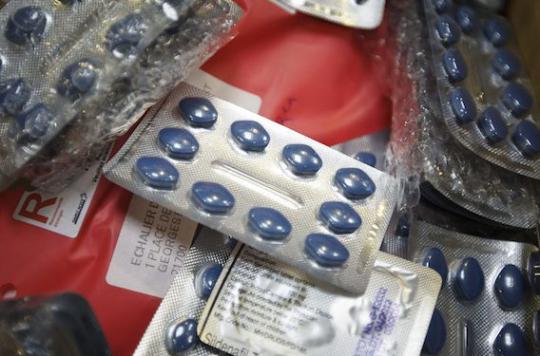6 out of 10 drugs sold online are counterfeit. A video campaign reminds consumers of their ineffectiveness and potential danger.

The “Allfaux” family orders medicines online. But she does not know that 62% of pharmaceutical products available on the Internet are counterfeit. This finding prompted theInternational Institute for Anti-Counterfeit Medicine Research (IRACM) to launch a video campaign. Through the example of a family, he tries to warn about the risks of unconsidered online purchases.
In this almost two-minute sketch, the video follows the “Allfaux” family. The son of the family wishes to gain muscle mass, the daughter would like to lose belly. Two weeks after the delivery of drugs ordered online, teenagers are arguing about their lack of effectiveness.
After sending them to their room, the father addresses his wife. The screenwriters then refer to the lack of effectiveness of his treatment for erectile dysfunction. Fake drugs are “often ineffective and sometimes even dangerous”, concludes the IRACM.
Watch the video campaign
Three warning signs
The sale of medicines online has been authorized since January 2013 in France. To date, 318 pharmacies offer this service. The list is kept up to date on the website of the National Order of Pharmacists. Two purchasing methods are possible: medicines available without a prescription can be delivered directly to your home; patients can also order prescription drugs. They then collect them at the pharmacy, presenting their prescription.
Three signs should alert to the presence of fake medicines: products available on prescription over the counter, abnormally low prices without promotion, the presence of spelling mistakes or information in a foreign language.
+60% of drugs sold on #Internet counterfeits: @_IRACM raises awareness in #video https://t.co/iozcRNh5Xo https://t.co/mAn3173HyK
— Whydoctor (@Whydoctor) January 18, 2016
.















